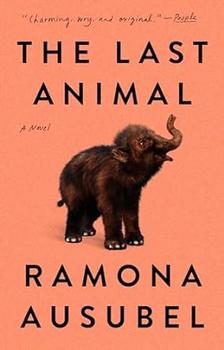Summary | Excerpt | Reading Guide | Reviews | Beyond the book | Read-Alikes | Genres & Themes | Author Bio

A Novel
by Bonnie GarmusBonnie Garmus's debut, Lessons in Chemistry, introduces readers to an exceptional woman struggling to succeed in a male-dominated field. When we first meet 30-year-old Elizabeth Zott, the year is 1961, and we quickly learn she's the single mother of a precocious child and the unlikely star of a wildly popular weekday cooking show, Supper at Six. We also discover that behind her TV persona, she's a talented research chemist who has taken what she feels is a demeaning position solely as a means of supporting her daughter. The narrative then rewinds to 1952 to explain how Elizabeth got to this point in her life.
Garmus sets her novel in the days before the Equal Rights Amendment and the #MeToo movement, when most men — and many women as well — believed that any woman who dared to enter a traditional men's profession was either "a lightweight or a gold digger," in the author's words. Worse, attractive single women in the workplace were often seen by powerful men as mere prey. Elizabeth experiences the worst of the worst: she's sexually assaulted; she's given a lab coat with her initials — "EZ" — rather than her last name; her work is openly ridiculed by her peers who then plagiarize it; and when her employer uses those breakthroughs to lure investors, they're told the discoveries were made by a "Mr. Zott." And that's just a small sample of the inequities this resilient woman must overcome.
Given the difficult subject matter at its core, one might think the novel is a dark, weighty exploration of the sexual discrimination rampant during the 1950s and early 1960s. Amazingly, it's really not; although the book's substance depends largely on this theme, its overall tone is positive and affirming.
Garmus's narrative reads a bit like a fable, often employing a simple, straightforward writing style and using repetition:
[Harriet Sloane] was unattractive and she knew it. She also knew that [Elizabeth's partner] was unattractive, and the sloppy dog Elizabeth brought home one day was unattractive, and there was a good chance Elizabeth's future baby would be unattractive too. But none of them were — or would ever be — ugly. Only Mr. Sloane was ugly, and that was because he was unattractive on the inside.
There's something comforting about a cadence like this — a subtle reassurance that all will be right in the end.
The writing is also frequently quite funny. At one point, for example, Elizabeth's producers insist she feature one of their sponsor's canned soups on her program. It looks like she's agreed when she holds up the soup can and, on live TV, tells her audience it's a real time-saver:
"That's because it's full of chemicals," she said, tossing it with a clunk into a nearby garbage can. "Feed enough of it to your loved ones and they'll eventually die off, saving you tons of time since you won't have to feed them anymore."
What truly makes the book work, though, is the main character. In addition to being smart, Elizabeth is endlessly logical, practical and clear-headed; she simply refuses to be undervalued. "The reduction of women to something less than men…is not biological: it's cultural," she tells her audience as she proceeds to ignore the boundaries some would impose on her because of her sex. We fall in love with her not so much for the fact that she pushes back against these limits but because she points out their irrationality and proceeds accordingly.
The book does have a few flaws, partially stemming from its overall storybook feel. The author's simplified writing style is especially apparent in the novel's first chapters, which almost read as if they were pitched to a young adult audience. The technique is less noticeable as the narrative proceeds, but some readers may be turned off before the story really gets rolling. In addition, the characters who surround Elizabeth lack nuance; with few exceptions, the "good" characters are all very intelligent and supportive while the bad characters are stupid and evil. Finally, much of the plot — including its fairytale ending — relies heavily on coincidence.
Some might conside Lessons in Chemistry "chick lit," but I think that label does the book a disservice. Although its audience will likely be predominantly female, its themes are weighty and relevant, and any romance in it is much like Elizabeth herself: logical, analytical and not at all "frothy." The novel's exploration of gender roles will make it a good choice for book group discussions, and its unforgettable heroine and feel-good ending will almost certainly garner the author a host of avid fans.
![]() This review was originally published in The BookBrowse Review in December 2022, and has been updated for the
May 2025 edition.
Click here to go to this issue.
This review was originally published in The BookBrowse Review in December 2022, and has been updated for the
May 2025 edition.
Click here to go to this issue.

If you liked Lessons in Chemistry, try these:

by Kerri Maher
Published 2024
A dramatic and inspiring novel based on the true story of the Jane Collective and the brave women who fought for our right to choose, from the USA Today bestselling author of The Paris Bookseller.

by Ramona Ausubel
Published 2024
A playful, witty, and resonant novel in which a single mother and her two teen daughters engage in a wild scientific experiment and discover themselves in the process, from the award-winning writer of Sons and Daughters of Ease and Plenty
Your guide toexceptional books
BookBrowse seeks out and recommends the best in contemporary fiction and nonfiction—books that not only engage and entertain but also deepen our understanding of ourselves and the world around us.